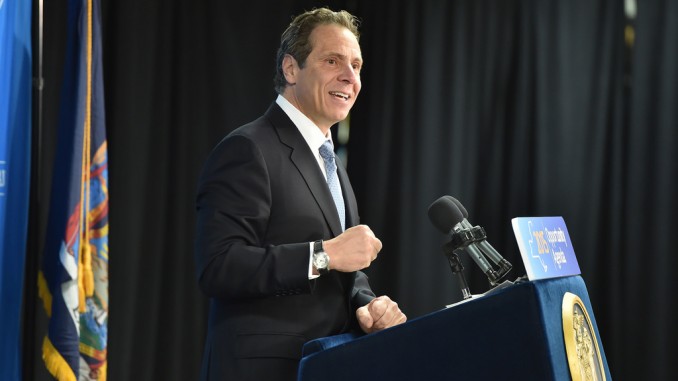
On Jan. 27, Gov. Andrew Cuomo announced that State University of New York campuses, including New Paltz, are welcoming a partnership with the New York State Department of Health as part of the latest effort of the “Enough is Enough” campaign.
The partnership will initiate programs to train college faculty, staff and students to help identify sexual assault and interpersonal violence. Thanks to a $496,000 grant from the federal Centers for Disease Control and Rape Prevention and Education Program, all SUNY campuses may choose to participate in the training at no cost to the school.
By utilizing existing research related to sexual violence prevention on college campuses, participants will be trained to react properly as by-standing witnesses to sexual violence. Upon training completion, participants are certified to lead their own bystander intervention programs as a way to share their knowledge with their peers and professors.
President Donald P. Christian said that although SUNY has yet to provide guidelines on when the training programs will be readily available to students, administration has been working on ways to conduct our own climate survey to establish a baseline of information to work from in the near future.
With the help of Title IX Coordinator and Executive Director for Compliance and Campus Climate Tanhena Pachecho-Dunn, New Paltz continues to be held up as a model by SUNY for the development of programs and approaches to on campus sexual assault that have been adopted by both SUNY and private college campuses across New York state.
“Survivors of sexual assault have multiple paths that they can follow in the process and in the past Tanhena would get reports coming through Student Affairs,” President Christian said. “More recently she’s been getting students coming directly to her which is an outgrowth of student education.”
In the meantime, administration is discussing its vision for future efforts, including extensive training for resident assistants and orientation leaders. Ideally, students can be introduced to the conversation with an outline of bystander training at orientation, and then continue the discussion in more concentrated follow-ups during the first few weeks of the fall semester. Nothing is set in stone, but the greatest goal is to keep sexual assault and interpersonal violence prevention an ongoing conversation as students enter and leave New Paltz.
“Students are understanding that the resources are available and maybe there is increasing trust that the process works and works well with victims’ rights,” said President Christian. “We wish these incidents did not happen at all but it’s rewarding to see that the processes that are being used to support victims of sexual assault are successful.”
